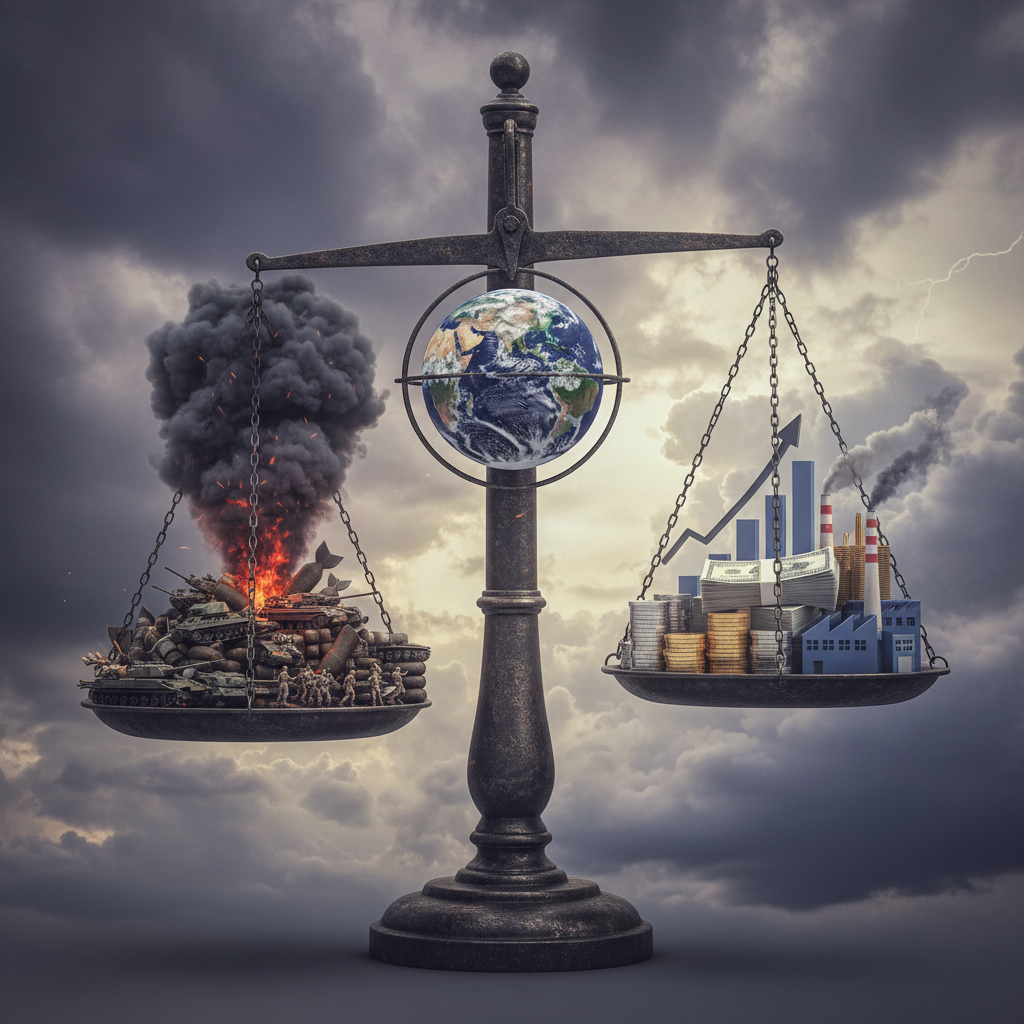Immediate consequences of wars on the economy
Wars cause a direct and severe impact on the economy of the affected countries, altering their normal functioning since the beginning of the conflict. The destruction of infrastructure and the reduction of productive capacity are the most obvious damages.
Furthermore, the trade interruption it is inevitable, creating shortages of basic products and raising prices, which affects the economic and social stability of warring regions and can also impact the global system.
Destruction of infrastructure and loss of productive capacity
One of the most immediate effects is the physical destruction infrastructure, factories and equipment necessary for production. This causes a significant decrease in national productive capacity.
The loss of physical capital not only affects current production, but generates lasting economic losses, delaying recovery and limiting the future development of countries facing war.
Trade interruption and price increase
Wars block trade routes and affect supply chains interrupting international trade and reducing the availability of essential goods. This causes a general increase in prices.
This increase is especially reflected in food, energy and raw materials, contributing to inflation and affecting the most vulnerable populations more strongly, who directly suffer from shortages and rising prices.
Financial and fiscal impacts during conflicts
During war conflicts, public spending increases considerably due to the need to finance military and security operations. This generates a significant fiscal impact for States.
Furthermore, this increase in spending is often financed through debt, which increases the future financial burden and limits investment in social and economic areas essential for development.
Increase in public spending and debt
Conflicts force governments to allocate more resources to the military budget, which increases public spending on a sustained basis. This situation can cause significant fiscal imbalances.
To cover these expenses, many countries resort to issuing debt, raising their debt levels and compromising economic stability in the medium and long term.
The increase in debt limits the State's ability to implement social policies, public investment and development projects, affecting the quality of life of the population.
Uncertainty, capital flight and disincentive to investment
Conflicts generate a strong economic uncertainty, creating an adverse environment for both foreign and national investment. This slows down economic growth and job creation.
Political and war instability causes investors to withdraw their capital, causing capital flight that makes it difficult to finance productive activities and post-conflict recovery.
This environment of mistrust discourages private investment, slowing down innovation and economic development in the affected countries.
Population displacements and social tension
War conflicts displace large groups of people, generating humanitarian crises and increasing pressure on the social and economic systems of neighboring or receiving countries.
These displacements cause social tensions and increase the demand for public resources to care for the refugee population, aggravating the fiscal situation of the states involved.
Social tension resulting from mass migration can further destabilize economies, making peacebuilding and economic recovery after conflict difficult.
Global and geopolitical effects of wars
Wars not only affect the regions involved, but their impacts are transmitted globally, disturbing financial markets and affecting the economic growth of multiple countries.
Additionally, conflicts often cause geopolitical fragmentation, generating divisions and difficulties for international cooperation, which can affect long-term global stability and development.
Impact on financial markets and global economic slowdown
War conflicts generate volatility in financial markets, affecting stock markets, currencies and raw materials, which increases economic risk in countries not directly involved.
This uncertainty contributes to a global slowdown, as supply chains are disrupted and investor confidence declines, restricting economic activity in various regions.
Recent examples show that wars can trigger rapid inflationary rises and prolonged slowdowns that affect strong economies, generating far-reaching consequences globally.
Geopolitical fragmentation and risks for international cooperation
Wars accelerate the creation of opposing economic and political blocs, increasing geopolitical fragmentation and complicating collaboration between nations to solve common problems.
This division affects trade, environmental and security agreements, making it difficult to coordinate necessary to face global challenges such as climate change and economic crises.
Lack of cooperation in a fragmented world reduces the capacity to respond to future crises and limits joint economic growth, increasing international tensions.
Lasting and social consequences of war conflicts
Armed conflicts generate prolonged effects on the economy, such as persistent inflation and slower economic growth. These consequences make recovery difficult and affect quality of life.
Furthermore, social damage from conflict can create prolonged instability, complicating reconstruction and social cohesion, and delaying sustainable development in affected regions.
Persistence of inflation, unemployment and lower economic growth
After a war, inflation usually remains high for several years due to the shortage of goods and the destruction of productive infrastructure, which makes economic recovery more expensive.
Unemployment increases significantly due to job losses and the limited creation of new jobs, affecting job stability and the income of the population.
This uncertain economic environment contributes to lower long-term growth, since capital and resources are allocated to reconstruction and not productive expansion.
Repercussions on post-conflict social and economic stability
Recovery after a war conflict is complex and prolonged, as society faces social tensions derived from displacement and profound material losses.
Distrust and social divisions hinder reconciliation and can generate political instability, undermining economic progress and collective well-being.
Likewise, governments face challenges in restoring basic services and generating employment, which negatively impacts stability and development in the medium term.






